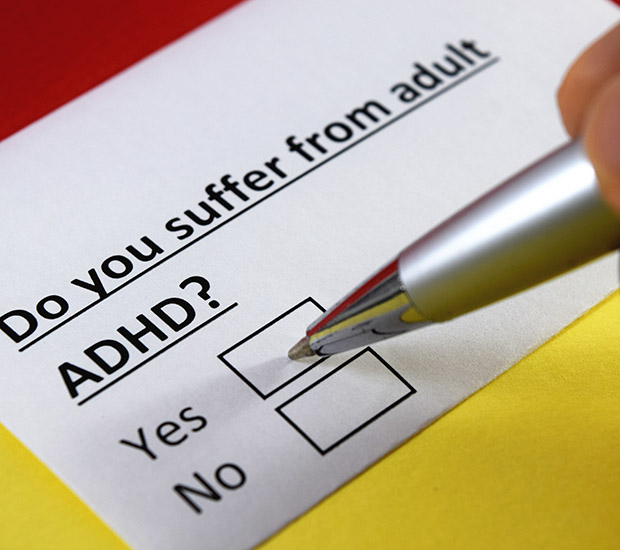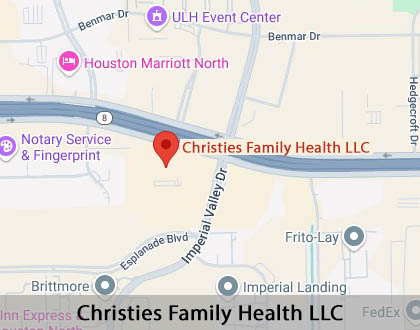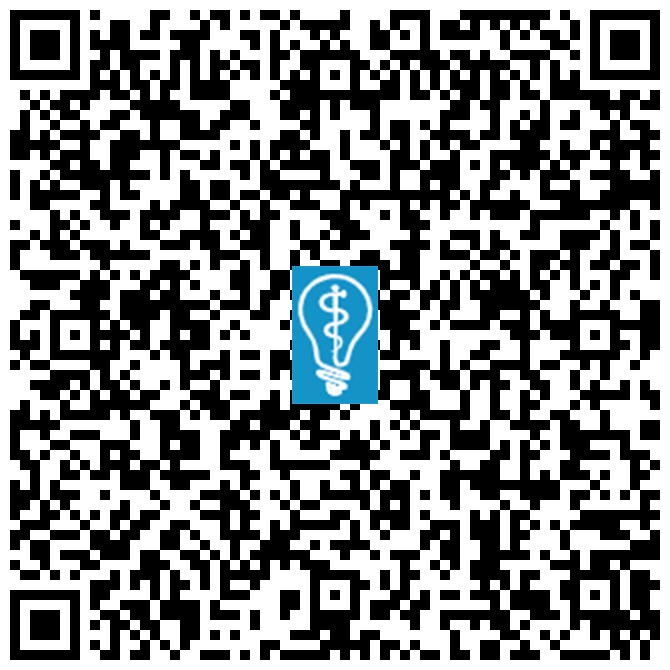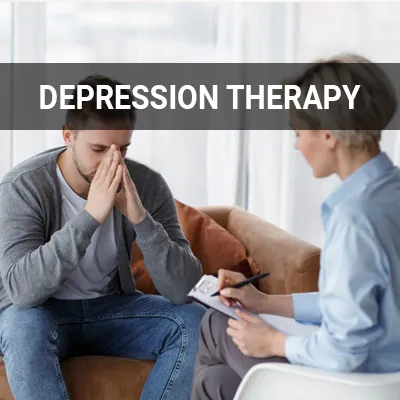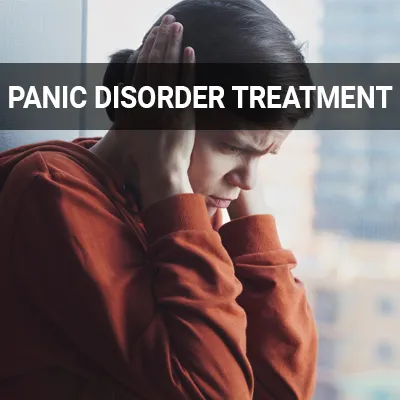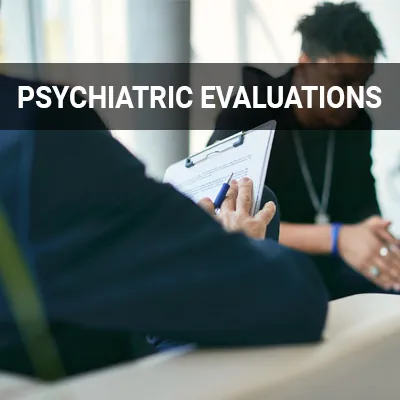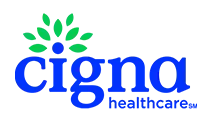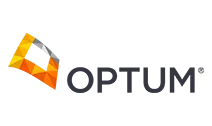Adult ADHD Treatment Houston, TX
Adult attention deficit hyperactivity disorder (ADHD) treatment can help people find relief from their symptoms to live normal and productive lives. Although there is no cure for ADHD, the right treatment can help patients manage their hyperactivity or inattentiveness. A combination of medication, learning skills, and therapy is available depending on a patient’s needs.
If ADHD is interfering with your life, do not hesitate to seek treatment. Our psychiatrist and team at Christies Family Health LLC in Houston and the surrounding area will determine a treatment plan that works best for you. Call us today at (832) 915-1818 to learn more about our services or schedule an appointment.
Understanding Adult ADHD
Adult ADHD is a developmental disorder that is associated with persistent impulsivity, hyperactivity, and inattention. This pattern of behavior can cause significant interference in a person’s daily life and relationships. While ADHD typically begins in childhood, it often persists into a person’s teen and adult years. According to the National Institute of Mental Health (NIH), about 2.5% of adults have ADHD, but many do not receive proper diagnosis and treatment. The manifestations of this mental health disorder usually shift and change with age. While some cases of adult ADHD may be challenging to recognize due to decreased hyperactivity, many still struggle with restlessness, inattentiveness, and impulsivity.
There are two main types of ADHD, hyperactive type attention deficit disorder and inattentive type attention deficit disorder. Adults with the hyperactive version of this disorder feel the need to move constantly. This results in them fidgeting, squirming, and struggling to remain seated or stay still. Hyperactivity can cause adults to struggle with self-control, resulting in them interrupting others, blurting out answers, and talking constantly. More men than women are diagnosed with this form of ADHD. Adults with inattentive ADHD have difficulty paying attention, following detailed instructions, and remaining organized. These characteristics can result in people making careless mistakes and being easily distracted. Women are more commonly diagnosed with the inattentive type.
“Adult ADHD or adult attention deficit disorder is a developmental disorder associated with persistent impulsivity, hyperactivity, and inattention.”
Symptoms of Adult ADHD
While symptoms of hyperactive ADHD include having difficulty with impulsivity and restlessness, they do not include difficulty paying attention. Adults with this type of ADHD may find it challenging to participate in leisure activities and always appear to be on the go. Difficulty controlling impulses can also cause people to display sudden and intense changes in their emotional state. Adults with inattentive ADHD exhibit symptoms of distractibility but are not hyperactive or impulsive. They may be unable to concentrate, resulting in careless mistakes and not following directions. Working adults affected by this disorder may forget about meetings, plans, and deadlines.
Adult ADHD symptoms can create challenges for people in many aspects of their lives, from work and school to home. These symptoms may range from mild to severe. While some people may have fewer symptoms as they grow older, other adults may continue to experience major symptoms that interfere with their everyday lives. In some cases, adults may not know they have ADHD if parents and teachers missed the signs when they were younger. Fortunately, treatment can help adults learn how to manage their ADHD and develop their strengths to live productive and healthy lives.
“While symptoms of hyperactive ADHD include having difficulty with impulsivity and restlessness, they do not include difficulty paying attention.”
Adult ADHD Causes
There is not enough research to determine the exact cause of ADHD yet. No single factor causes ADHD since many risks and risk pathways can result in the same disorder. Multiple inherited and non-inherited risk factors may contribute to adult ADHD. Research shows that genetics play a vital role in ADHD.
Adults with a family history of this disorder may be at greater risk of developing it. Other potential risk factors that scientists are exploring include:
- Alcohol and tobacco use during pregnancy
- Brain injury
- Developmental problems
- Exposure to certain environmental toxins
- Premature birth
“No single factor causes ADHD since there are many risks and risk pathways that can result in the same disorder.”
Check out what others are saying about our mental wellness services on Yelp: Adult ADHD Treatment in Houston, TX
Treatment Options for Adult ADHD
While many people think ADHD treatment only involves medication, it is important to understand that they do not work for everyone. Even if they do work, medication cannot eliminate all symptoms. The most effective form of treatment is typically multimodal, involving a combination of medication, life skills training, and behavioral therapy and strategies. Ultimately, the appropriate treatment depends on the patient’s symptom severity. A patient’s ADHD symptoms may change over time, necessitating different medications or learning new skills to stay organized and focused. Other patients may need supplemental treatment for other issues such as anxiety or depression.
Finding the right treatment is a process of trial and error, and what works initially may not continue to be successful over time. Some medications used to manage ADHD symptoms include stimulants, non-stimulants, and antidepressants. Once a patient finds the right medication dosage to manage their ADHD, they will have regular follow-up appointments to ensure that the treatment is working and that their side effects are minimal. ADHD medication works best when used in conjunction with other treatments, such as therapy. A psychiatrist will help determine which treatment combination will be best for the patient. While there are many types of therapy for ADHD treatment, one of the most common ones is cognitive-behavioral therapy (CBT). During CBT, patients will learn how to change their negative behaviors and beliefs to have more control over their lives. This therapy can help adults with ADHD overcome challenges at work, school, and in relationships with others.
“The most effective form of treatment is typically multimodal, which involves a combination of medication, therapy, behavioral strategies, and life skills training.”
Questions Answered on This Page
Q. What are the symptoms of adult ADHD?
Q. What treatment options are there for adult ADHD?
Q. What are the benefits of seeking treatment for adult ADHD?
People Also Ask
Q. When should someone seek a psychiatric evaluation?
Benefits of Seeking Adult ADHD Treatment
Adults exhibiting behaviors that are causing issues at work, school, or with family and friends can benefit from seeking ADHD treatment. Seeking ADHD treatment as an adult has many benefits, from managing symptoms to learning organizational skills. People who respond well to treatment can see improvements in the quality of work and productivity. While medication and therapy are not cures for ADHD, they can help patients recognize their most impaired areas, develop improvement plans, and take steps to accomplish them.
Without the proper treatment, people may have difficulty focusing at work or at home. In other cases, people may also have trouble maintaining relationships with others. This can lead to frustration, low self-esteem, and other mental health issues. We believe in the importance of personalized treatment plans since every patient has varying needs and degrees of symptom severity.
“Adults exhibiting behaviors that are causing issues at work, school, or with family and friends can benefit from seeking ADHD treatment.”
Frequently Asked Questions
Q. Is it possible for people to develop ADHD in adulthood?
A. No. People do not suddenly develop ADHD as an adult. Signs of ADHD must be present before the age of 12 to meet the diagnosis criteria. However, in some cases, children and adolescents may be overlooked and not receive a proper diagnosis until they are adults.
Q. Do I still have ADHD if I can concentrate on certain things?
A. Yes, it is possible. Some people with ADHD can concentrate on certain topics that they find interesting. They may concentrate on something so intently that they lose track of other things happening around them. While they can focus on narrow topics, it is challenging for them to pay attention to topics that they find less interesting.
Q. Is there a cure for adult ADHD?
A. While there is no cure for adult ADHD, it is treatable. However, ADHD symptoms can still return if a patient discontinues or interrupts treatment. The optimal treatment to manage ADHD symptoms involves a combination of behavior modification, medication, and therapy.
Q. Do people outgrow ADHD?
A. ADHD was once thought to be a childhood disorder. Now, research suggests that a majority of children with these disorders experience symptoms continuing into adulthood. Over time, a person’s symptoms may change and require different forms of treatment, but people with ADHD rarely outgrow it.
Q. Are there gender differences in ADHD?
A. Yes. While both men and women can have ADHD, this disorder causes women even more emotional difficulties. Women are more likely to go underdiagnosed or misdiagnosed than men and less likely to receive treatment for ADHD. Men with ADHD are more likely to experience the hyperactive type, while women are more likely to exhibit inattentive symptoms. Inattentive symptoms are less disruptive, which may be a possible reason women are underdiagnosed.
Change Is Possible – Call Us Today
Life isn't always easy. Are you struggling? Are you looking for a highly personalized and professional approach tailored to your individual needs? Instead of waiting around, call us today. You should know that there is hope for a better tomorrow.
Definitions
Call Us Today
Adult ADHD can affect multiple areas of your life. Our team at Christies Family Health LLC can help you find the right treatment to manage and overcome your symptoms. Call us today at (832) 915-1818 to learn more about our services or schedule an appointment.
Helpful Related Links
- Agency for Healthcare Research and Quality. Agency for Healthcare Research and Quality. 2024
- American Psychiatric Association (APA). American Psychiatric Association (APA). 2024
- Psychology Today. Psychology Today. 2024
- The American Board of Professional Psychology. The American Board of Professional Psychology. 2024
- The American Journal of Psychology. The American Journal of Psychology. 2024
- The National Association of Behavioral Healthcare. The National Association of Behavioral Healthcare. 2024
About our business and website security
- Christies Family Health LLC was established in 2021.
- We accept the following payment methods: American Express, Check, Discover, MasterCard, and Visa
- We serve patients from the following counties: Harris County
- We serve patients from the following cities: Houston, Aldine, Jersey Village, Humble, and East Aldine
- Norton Safe Web. View Details
- Trend Micro Site Safety Center. View Details
Back to top of Adult ADHD Treatment
